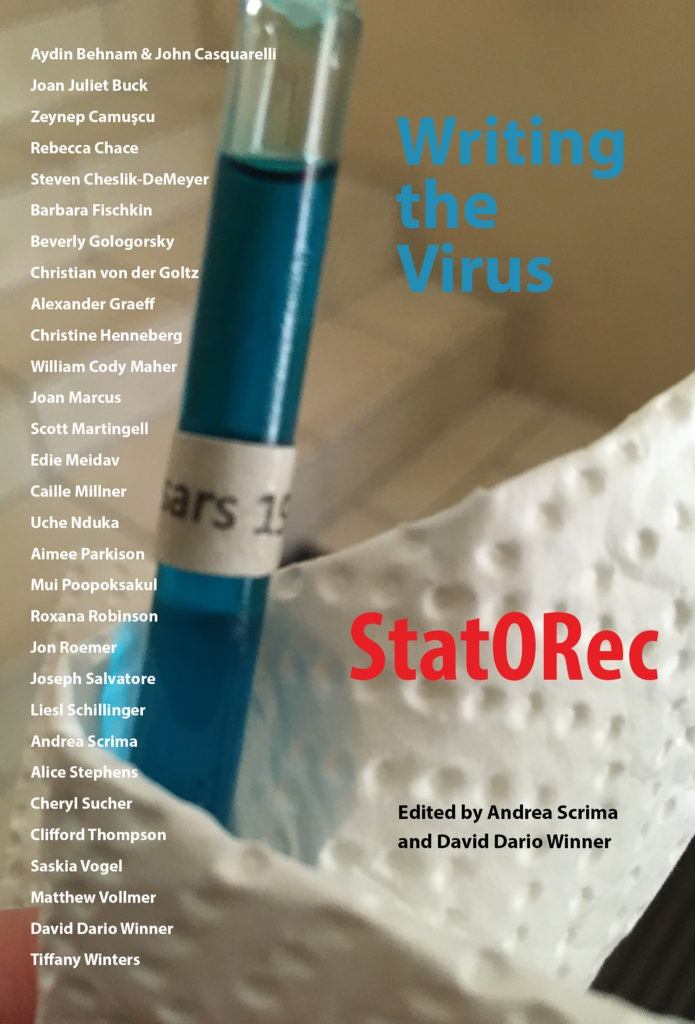by Andrea Scrima

An anthology I’ve edited with David Winner, titled Writing the Virus, has just been published by Outpost19 Books (San Francisco). Its authors—among them Joan Juliet Buck, Rebecca Chace, Edie Meidav, Caille Millner, Uche Nduka, Mui Poopoksakul, Roxana Robinson, Jon Roemer, Joseph Salvatore, Liesl Schillinger, Andrea Scrima, Clifford Thompson, Saskia Vogel, Matthew Vollmer, and David Dario Winner—explore the experience of lockdown, quarantine, social distancing, and the politicization of the virus from a wide variety of perspectives. The majority of the texts were written exclusively for the online literary magazine StatORec, and a keen sense of urgency prevails throughout, an understanding that the authors are chronicling something, responding to something that is changing them and the social fabric all around them.
The range of this anthology is broad: there’s a haunting story that explores the psychological dimensions of an anti-Asian hate crime with a curiously absent culprit; hallucinatory prose that gropes its way through a labyrinth of internalized fear as human encounters are measured in terms of physical distance; a piece on the uncomfortable barriers of ethnicity, civic cooperation, and racism as experienced by someone going out for what is no longer an ordinary run; and a jazz pianist who listens to what’s behind the eerie silence of the virus’s global spread. Read more »
